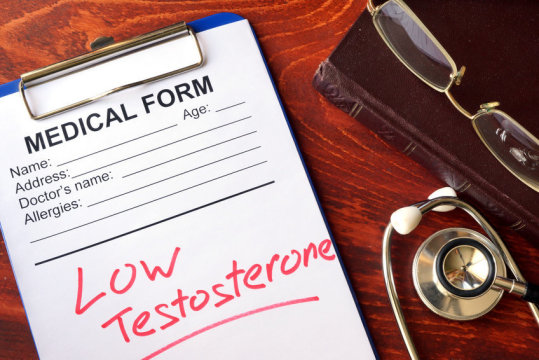[ad_1]
Men’s testosterone levels are largely determined by their environment during childhood, according to new research.
The Durham University-led study suggests that men who grow up in more challenging conditions where there are lots of infectious diseases, for example, are likely to have lower testosterone levels in later life than those who spend their childhood in healthier environments.
The study, published in Nature Ecology and Evolution, challenges the theory that testosterone levels are controlled by genetics or race.
As high testosterone levels potentially lead to an increased risk of prostate enlargement and cancer, the researchers suggest that any screening for risk profiles may need to take a man’s childhood environment into account.
The study found that Bangladeshi men who grew up and lived as adults in the UK had significantly higher levels of testosterone compared to relatively well-off men who grew up and lived in Bangladesh as adults. Bangladeshis in Britain also reached puberty at a younger age and were taller than men who lived in Bangladesh throughout their childhood.
The researchers say the differences are linked to energy investment as it may only be possible to have high testosterone levels if there are not many other demands placed on the body such as fighting off infections.?In environments where people are more exposed to disease or poor nutrition, developing males direct energy towards survival at the cost of testosterone.
The researchers collected data from 359 men on height, weight, age of puberty and other health information along with saliva samples to examine their testosterone levels. They compared the following groups: men born and still resident in Bangladesh; Bangladeshi men who moved to the UK (London) as children; Bangladeshi men who moved to the UK as adults; second-generation, UK-born men whose parents were Bangladeshi migrants; and UK-born ethnic Europeans.
Lead author of the study, Dr Kesson Magid from Durham University’s Department of Anthropology (UK), said: “A man’s absolute levels of testosterone are unlikely to relate to their ethnicity or where they live as adults but instead reflect their surroundings when they were children.”
Men with higher levels of testosterone are at greater risk of potentially adverse effects of this hormone on health and ageing. Very high levels can mean increased muscle mass, increased risk of prostate diseases and have been linked to higher aggression. Very low testosterone levels in men can include lack of energy, loss of libido and erectile dysfunction. The testosterone levels of the men in the study were, however, all in a range that would unlikely have an impact on their fertility.
Co-author Professor Gillian Bentley from Durham University, commented: “Very high and very low testosterone levels can have implications for men’s health and it could be important to know more about men’s childhood circumstances to build a fuller picture of their risk factors for certain conditions or diseases.”
Aspects of male reproductive function remain changeable into adolescence, up to the age of 19 and are more flexible in early rather than late childhood, according to the research. However, the study suggests that, in adulthood, men’s testosterone levels are no longer heavily influenced by their surroundings.
Senior co-author Gillian Bentley and colleagues have also previously found that the environment in which girls grow up can affect their hormone levels, fertility and risk levels for reproductive cancers as adults.
The research was funded by the Economic and Social Research Council (ESRC), the Royal Society and Prostate Cancer UK, and involved researchers from the University of Chittagong (Bangladesh), Durham University (UK), and Northwestern University (USA).
Story Source:
Materials provided by Durham University. Note: Content may be edited for style and length.
[ad_2]















